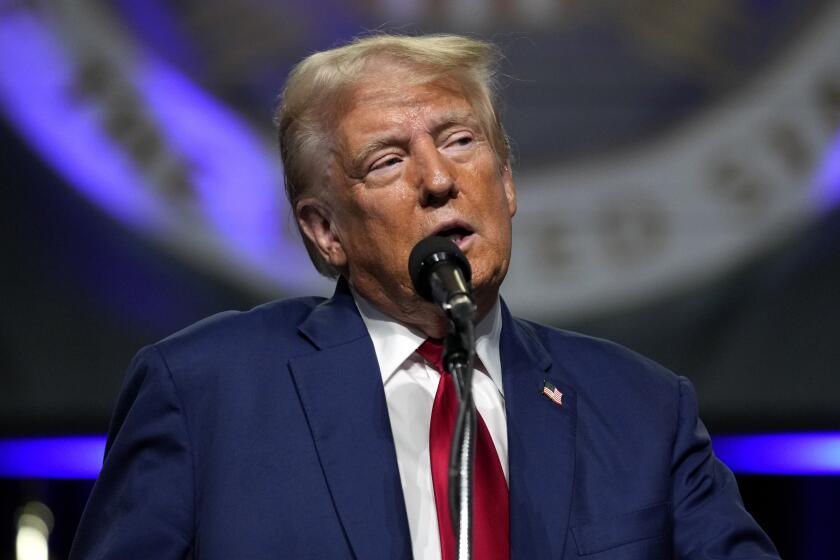On the trail of torture
If Atty. Gen. Eric H. Holder Jr. believes that crimes may have been committed in the use of “enhanced interrogation techniques” against suspected terrorists, he has no choice but to ask a respected prosecutor to weigh the evidence and, if appropriate, bring charges. But the appointment of such a figure, which The Times has reported is imminent, won’t provide critics of the CIA with the legal equivalent of a wide-ranging “truth commission” they have been seeking. Nor is it likely to illuminate the conduct of White House lawyers or policymakers.
That doesn’t mean a criminal probe is pointless. If there is evidence that interrogators went beyond what (horribly flawed) legal advice authorized, it should be pursued by a prosecutor with at least as much autonomy as that given Patrick J. Fitzgerald, the special counsel who investigated the leaking of the identity of CIA employee Valerie Plame. Fitzgerald’s efforts, which resulted in the conviction of I. Lewis “Scooter” Libby, an aide to Vice President Dick Cheney, should be the model for any probe into whether interrogators broke the law.
Holder may already have found his man in John H. Durham, the veteran federal prosecutor from Connecticut who has been investigating the destruction by the CIA of videotapes of waterboarding. Broadening Durham’s mandate to include the legality of the interrogations themselves would be logical and time-saving. It would have the additional advantage for Holder and President Obama of entrusting the investigation to a prosecutor originally named by President George W. Bush’s last attorney general, Michael B. Mukasey.
Like Obama and CIA Director Leon E. Panetta, Holder is disinclined to prosecute interrogators who complied with legal advice, however flimsy. That approach is prudent, especially given legislation passed by Congress providing interrogators with a legal defense based on “good faith reliance on advice of counsel.” Even if a special counsel found that some interrogators went beyond their orders -- for example, by waterboarding a suspect more often than permitted -- problems of proof and sympathetic juries could make convictions impossible.
That is not a reason for a prosecutor to throw up his or her hands and refuse to gather as much evidence as possible. But it’s a reminder that the criminal justice system is an imperfect remedy for a pervasive policy of subordinating human rights to an unrelenting war on terror -- a policy in which Congress often was complicit.
More to Read
Get the L.A. Times Politics newsletter
Deeply reported insights into legislation, politics and policy from Sacramento, Washington and beyond. In your inbox three times per week.
You may occasionally receive promotional content from the Los Angeles Times.










